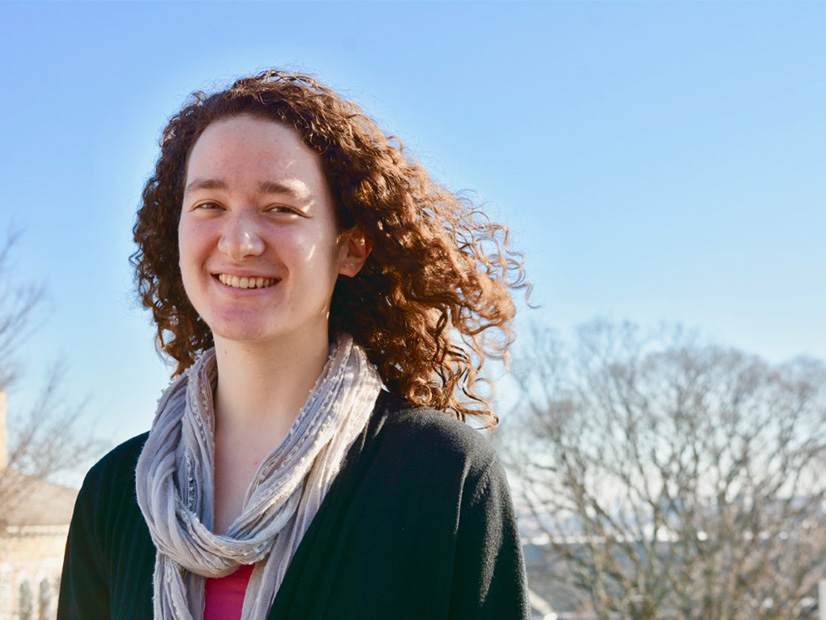The city of Newton, Mass., has created a new government position designed to bridge the gap between the city’s goals and residents’ actions to address climate change.
Newton has been developing a plan to significantly reduce greenhouse gas emissions by 2025. Along with building walkable neighborhoods and planting trees, the city’s Climate Action Plan introduced an “energy coach” to help individuals adopt renewable energy upgrades to their homes, businesses and vehicles.
Liora Silkes, who stepped into the role earlier this year, is working with residents, builders and contractors to reduce carbon emissions.
Residents can ask questions about everything from home retrofits and solar panels to electric vehicles and heat pumps and get free advice on how to make the transition.
“There’s been a lot of interest,” Silkes told NetZero Insider, “especially from individuals not well-versed in building science.”
Silkes has spent the past few weeks alternating between answering technical questions and guiding Newton residents through their first steps in understanding energy efficiency.
The benefit of consulting with an energy coach instead of a contractor is that the coach is not trying to sell a product, Silkes said.
There are a variety of programs and resources available to help residents convert to solar or improve home insulation, but the process of finding the right fit can be overwhelming. Some residents may not know these programs exist. Silkes said she connects residents to the resources they need to reduce emissions as much as possible in the most affordable way.
Newton’s residential and commercial buildings account for about 64% of the city’s GHG emissions. Helping Newton’s citizens with home energy upgrades is a vital part of achieving the statewide goal of net-zero emissions by 2050, Silkes said.
Local leadership believes the municipal energy coach position is the first of its kind in the U.S. In the face of rapidly approaching deadlines for emission reductions, it is also an important one, Jonathan Klein, a member of Newton Citizens Commission on Energy, told NetZero Insider.
The political environment for climate action is critical, but meeting the city’s goals is “up to many little decisions made by individuals,” Klein said.
He helped develop the full-time position, and he volunteers as a part-time energy coach for the community. Klein built a website to make it easier for Newton residents and businesses to schedule a free phone or video consultation. Other volunteer energy coaches available on the website include experts in solar, heating, insulation and electric vehicles.
One Newton woman bought a dental practice and knew it could be more energy efficient. The energy coaches connected her with a renovator who focuses on making small businesses environmentally sustainable. Another resident contacted Klein with questions about why the two bids he received on heat pumps were so different. Others reach out to make sure they are not being scammed by so-called solar energy companies offering lower energy bills.
“I truly believe that climate change is an existential threat, and I wanted to do something about it,” Klein said, but he also runs his own business and is raising a family. The full-time energy coach can make a stronger impact in the community because their workday and expertise are dedicated to helping individuals with the logistics of energy upgrades, he said.
Silkes graduated from Tufts University in 2019 with a bachelor’s degree in environmental studies and sociology; she previously worked for the energy efficiency incentives program, Mass Save.
She views her new role as a way to build on state and national programs like HeatSmart, which helps low-income households reduce energy use by advising them on how to change their heating habits and sources. Instead of advising individuals in a single area of energy use, Silkes has an opportunity to help individuals look at their insulation, heating and cooling, energy storage and transportation holistically.
Ann Berwick, Newton’s co-director of sustainability and former chair of the department of public utilities, said both policymakers and individuals have an obligation to work at attaining carbon neutrality. But there is a “general recognition that people need help figuring out how to address climate change, even people who want to.”
Berwick and Klein said they hope the energy coach model is replicated in other municipalities.
“We’re having this technological shift on the residential side of things,” Berwick said, so the introduction of an energy coach is “remarkable.”





